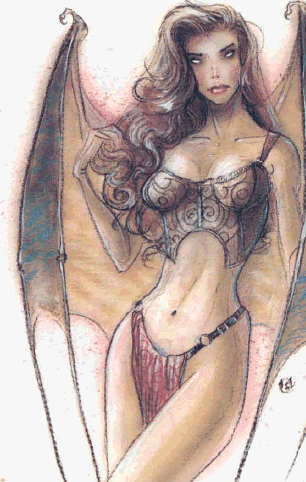4E takes the mythic approach to lore. The descriptions are written as if an explorer or adventurer was taking notes, or occasionally as if a historian was writing after the fact.
Therefore, a lot of details are indeed left vague. They're generally left as descriptive, rather than prescriptive. Let me use an example.
Weapons of Primordial Power: Some scholars believe that elementals,
belying their chaotic nature, act under the guidance of higher powers. These
sages assert that the primordials, the undisputed masters of elemental power,
use elementals as tools in the world because they are unable to act from their
prisons. An elemental attack on a distant outpost might seem like an isolated
occurrence until someone realizes that each outpost along the border has suffered
a similar attack. Perhaps the realm contains an ancient secret to help
free one of the primordials, or perhaps it is a beacon of light and order in an
otherwise dark and chaotic world. Alternatively, a spellcaster might find the
summoning and binding of many powerful elementals to be a simple task,
only to later discover that the elementals allowed themselves to be bound in
order to later escape and sabotage a planar ritual, throwing open a portal to the
Elemental Chaos. Regardless of whether the speculation of scholars holds true,
elementals seem built to be weapons and tools. They lack intelligence and ambition,
making them the perfect servants of those who want to act in secrecy and
without fear of betrayal.
Were 2E or 3E to attempt to write this, they'd, well... they'd flub it. 2E and 3E monster manuals had no mystery. They had no adventure. Each was prescriptive, describing how things worked. It was left entirely up to the DM to write the hooks. "It takes a wizard of at least 13th level and 1d4 weeks to open a portal to the elemental chaos. The wizard must chant for at least 8 hours per day. Five Diamonds each worth at least 6,000 GP must be destroyed during the ritual." etc.
Maybe I just don't like D&D (I certainly never did before 4E) because I hate that approach. But I've literally never understood the advantages of it.
What's wrong with mythic history? Mythic history is MYTH. Does the existence of King Arthur myths imply that he existed? Gilgamesh? The Trojan Horse? Hercules?
A fantasy world will have MORE myths than ours, not less. Most of them are wrong, or distortions, or just misunderstandings. In some, there's a grain of truth. That's myth.
Therefore, a lot of details are indeed left vague. They're generally left as descriptive, rather than prescriptive. Let me use an example.
Weapons of Primordial Power: Some scholars believe that elementals,
belying their chaotic nature, act under the guidance of higher powers. These
sages assert that the primordials, the undisputed masters of elemental power,
use elementals as tools in the world because they are unable to act from their
prisons. An elemental attack on a distant outpost might seem like an isolated
occurrence until someone realizes that each outpost along the border has suffered
a similar attack. Perhaps the realm contains an ancient secret to help
free one of the primordials, or perhaps it is a beacon of light and order in an
otherwise dark and chaotic world. Alternatively, a spellcaster might find the
summoning and binding of many powerful elementals to be a simple task,
only to later discover that the elementals allowed themselves to be bound in
order to later escape and sabotage a planar ritual, throwing open a portal to the
Elemental Chaos. Regardless of whether the speculation of scholars holds true,
elementals seem built to be weapons and tools. They lack intelligence and ambition,
making them the perfect servants of those who want to act in secrecy and
without fear of betrayal.
Were 2E or 3E to attempt to write this, they'd, well... they'd flub it. 2E and 3E monster manuals had no mystery. They had no adventure. Each was prescriptive, describing how things worked. It was left entirely up to the DM to write the hooks. "It takes a wizard of at least 13th level and 1d4 weeks to open a portal to the elemental chaos. The wizard must chant for at least 8 hours per day. Five Diamonds each worth at least 6,000 GP must be destroyed during the ritual." etc.
Maybe I just don't like D&D (I certainly never did before 4E) because I hate that approach. But I've literally never understood the advantages of it.
What's wrong with mythic history? Mythic history is MYTH. Does the existence of King Arthur myths imply that he existed? Gilgamesh? The Trojan Horse? Hercules?
A fantasy world will have MORE myths than ours, not less. Most of them are wrong, or distortions, or just misunderstandings. In some, there's a grain of truth. That's myth.



